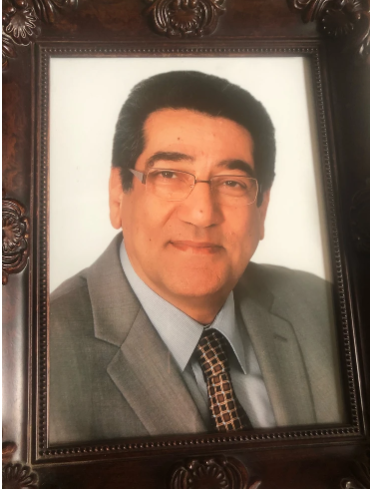
Obituary: Said Abdel Azim, MD., Ph.D, FRC Psych., FAPA, WPA Honorary Member (1942-2020)

It is with great sadness that WPA shares news of the passing of Dr. Said Abdel Azim on the 27 November 2020, in Cairo, Egypt. Dr Said Abdel Azim An esteemed psychiatrist and mental health advocate, Prof. Abdel Azim’s impact on the profession, and on those who were fortunate to know him, is difficult to condense. With over half a century of dedication to the field, he was a repository of knowledge, and an authority on clinical sexuality. Abdel Azim received his medical degree from Cairo University in 1964, and started his career as a surgeon in Suez University, before deciding to shift to psychiatry residency at Cairo University. He was awarded his M.D and Ph.D. in Psychiatry in 1974, and proceeded to establish the Psychosomatic Unit and the Human Sexuality Clinic at Cairo University Hospital.
The knowledge and technical skills he gleaned as a physician, his ability to synthesize and interpret physiological and psychological cues, make decisions and communicate effectively, coupled with his God-given calmness, all informed his approach, making him acutely aware of the multidimensional impact of other disorders on mental health. In the domain of human sexuality he was able to see people for who they are, without bias, and thereby heal. Prof. Abdel Azim also conducted pioneering research on the detrimental repercussions of Female Genital Mutilation, long before it became a national and regional imperative. He felt duty-bound to help society’s most misunderstood, most vulnerable individuals, and was way ahead of his time in this respect.
An active WPA member for almost 40 years, Prof. Abdel Azim was elected Northern Africa Representative, co-founding the Human Sexuality and Psychiatry Section, hosting XIII WCP in Cairo in 2005, while president of the Egyptian Psychiatric Association (EPA) and representing Egypt in the General Assembly. He proposed the section on Sports and Psychiatry and was a member of Addiction Psychiatry, as well as Honorary Member of WPA, Fellow of Royal College of Psychiatrists Fellow and APA Honorary Member. Fiercely loyal to the fiduciary contract of medicine, Prof. Abdel Azim continued to attend to the needs of the most marginalized and most threatened people in distress: people with issues related to sexuality. Often condemned culturally and socially, and challenged to normalize to blend in the mainstream social matrix, Prof. Azim pioneered in the acceptance and support of these individuals, through his practice, his teaching, as well and his measured approach to awareness-raising through various media channels. He did this unrelentingly, even as the pandemic progressed and his personal health would be jeopardized. He devoted his life to the service of others − following up with his patients and students until the night he was transferred to hospital, where he later died from nosocomial complications related to COVID-19.
Dr. Abdel Azim sets an example of humility, dedication and professionalism that is rarely recognized during a lifetime. He sought neither riches, nor rewards. However, he is worthy of all. He will be deeply missed, both professionally and personally, by his students, patients, colleagues and family. He is survived by his wife, Dr. Amal El-Beshlawy, Professor of Paediatric Haematology, and three daughters, all doctors, the eldest, Radwa (cultivated by her father the artist, scientist and healer), follows in his footsteps, co-chairing the WPA Human Sexuality section and pioneering creative arts therapies in the region. A lover of culture and music (a talented musician himself), Prof. Abdel Azim will be fondly remembered as the epitome of inclusiveness, collaboration, humility, and scientific endeavor under the most challenging of cultures.
 418
418 






